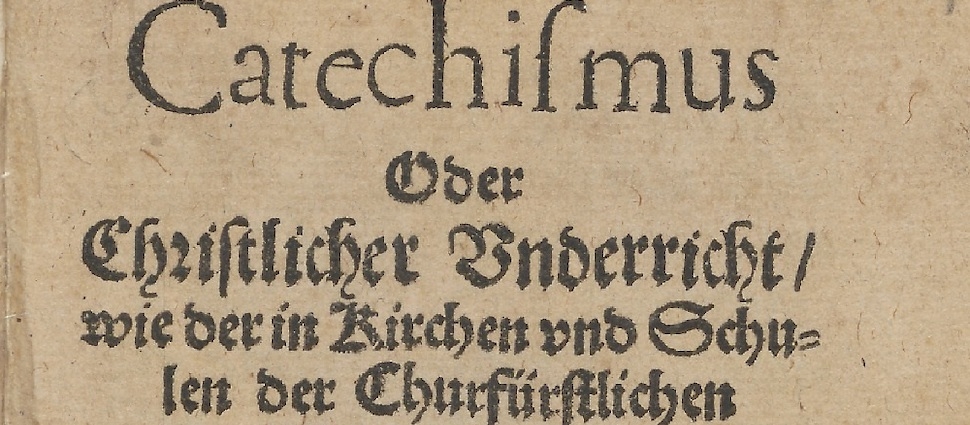Assurance and the Heidelberg Catechism

The Heidelberg Catechism, penned mostly by Zacharias Ursinus and Caspar Olevianus, is among the most beloved and best written statements of Reformed Christianity. The forms of assurance discussed in this catechism fall into two broad categories: 1) those benefits which accompany union with Christ and flow directly out of God’s character, and 2) various reminders and proofs of saving faith that continue throughout the Christian life and are secondary to our justification. The second category does not contribute to or bring about saving union with Christ, but these things are nonetheless a natural and necessary part of any Christian’s life.
1. Q. What is your only comfort in life and death?
A. That I am not my own, but belong with body and soul, both in life and in death, to my faithful Savior Jesus Christ. He has fully paid for all my sins with His precious blood, and has set me free from all the power of the devil. He also preserves me in such a way that without the will of my heavenly Father not a hair can fall from my head; indeed, all things must work together for my salvation. Therefore, by His Holy Spirit He also assures me of eternal life and makes me heartily willing and ready from now on to live for Him.
This question highlights three different sources of assurance. First, the believer is united to Christ and receives all the benefits thereof. Second, the sovereignty of God is such that He will certainly cause those who are saved to persevere. Third, the Holy Spirit indwells believers and provides assurance of eternal life.
The catechism states, “Only those are saved who by a true faith are grafted into Christ and accept all His benefits.” (Q20) These benefits include the imputed righteousness of Jesus Christ, which makes us just before God the Father.
60. Q. How are you righteous before God?
A. Only by true faith in Jesus Christ. Although my conscience accuses me that I have grievously sinned against all God's commandments, have never kept any of them, and am still inclined to all evil, yet God, without any merit of my own, out of mere grace, imputes to me the perfect satisfaction, righteousness, and holiness of Christ. He grants these to me as if I had never had nor committed any sin, and as if I myself had accomplished all the obedience which Christ has rendered for me, if only I accept this gift with a believing heart.
How do we know that our union with Christ will continue and that we will persevere until the end? The catechism tells us that the sovereignty of God is such that His purposes cannot fail. We are assured that “we can have a firm confidence in our faithful God and Father that no creature shall separate us from His love; for all creatures are so completely in His hand that without His will they cannot so much as move.” (Q28) Furthermore, we have the witness of the Holy Spirit, who first worked saving faith in us and allows it to continue.
65. Q. Since then faith alone makes us share in Christ and all His benefits, where does this faith come from?
A. From the Holy Spirit, who works it in our hearts by the preaching of the gospel, and strengthens it by the use of the sacraments.
We do not simply create faith in our own hearts, nor is our salvation suddenly in doubt if our faith seems imperfect on any given day. Rather, faith is the instrument by which we receive the saving righteousness of God.
61. Q. Why do you say that you are righteous only by faith?
A. Not that I am acceptable to God on account of the worthiness of my faith, for only the satisfaction, righteousness, and holiness of Christ is my righteousness before God. I can receive this righteousness and make it my own by faith only.
A secondary level of assurance comes from the sacraments and fruits of faith. The catechism states that the sacraments “were instituted by God so that by their use He might the more fully declare and seal to us the promise of the gospel”. (Q66) However, the sacraments do not have saving power in and of themselves. Rather, they point us to what truly saves.
67. Q. Are both the Word and the sacraments then intended to focus our faith on the sacrifice of Jesus Christ on the cross as the only ground of our salvation?
A. Yes, indeed. The Holy Spirit teaches us in the gospel and assures us by the sacraments that our entire salvation rests on Christ's one sacrifice for us on the cross.
While “our best works in this life are all imperfect and defiled with sin” (Q62) and the rewards of God are gifts of grace, the catechism does stress that “we ourselves may be assured of our faith by its fruits”. (Q86) Therefore, the ordinary means of grace and our sanctification point back to what Christ has already accomplished on our behalf, even as they point forward to the salvation that will be ours on the last day.
Amy Mantravadi holds a B.A. in Biblical Literature from Taylor University. She is an active member of Patterson Park Church in Beavercreek, Ohio. You can read her blog at www.amymantravadi.com or follow her on Twitter @AmyMantravadi.





